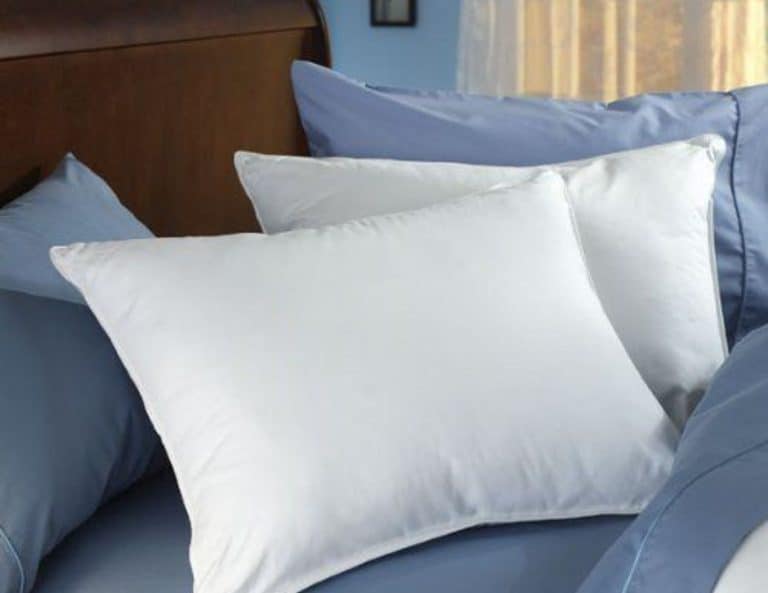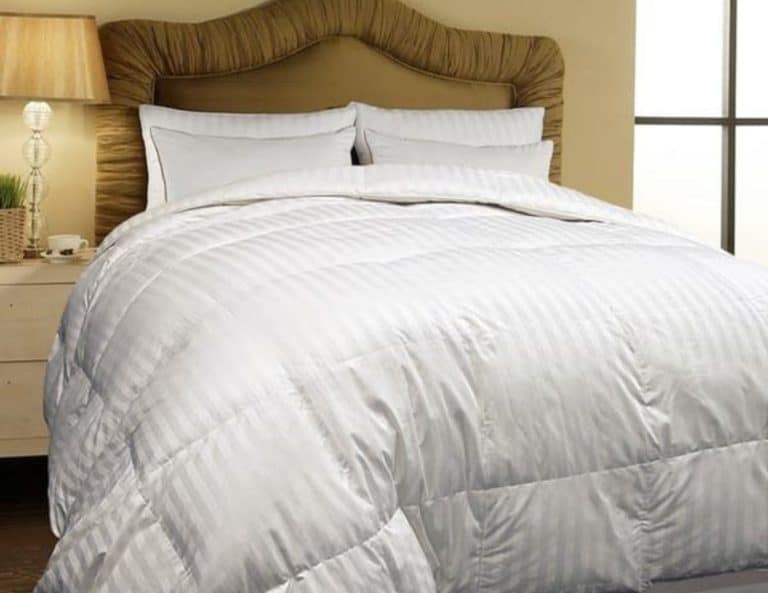If you’ve ever stayed in a hotel, you may have noticed that the rooms tend to be quite chilly.
But why is that the case?
If you’re short on time, here’s a quick answer to your question: Hotel rooms are often kept cold to cater to the preferences of a wide range of guests and to save energy costs.
In this article, we will delve into the reasons behind the chilly temperatures in hotel rooms, exploring factors such as guest comfort, energy efficiency, and HVAC systems.
We will also provide tips on how to stay warm and comfortable during your hotel stay.
So, let’s uncover the science behind the coolness of hotel accommodations.
Guest Comfort and Preferences
When it comes to hotel rooms, guest comfort is of utmost importance. Hoteliers strive to create an environment that caters to the preferences of a diverse range of guests. This includes considerations for temperature control, as different individuals have varying comfort levels when it comes to room temperature.
Variety of Guests
Hotels welcome guests from all walks of life, each with their own unique preferences. Some guests may prefer a cooler room, as they find it more refreshing and conducive to a good night’s sleep. On the other hand, some guests may feel more comfortable in a warmer environment. Hoteliers must find a balance that accommodates the majority of their guests, taking into account the different climatic preferences and cultural backgrounds.
Sleeping Preferences
Comfortable sleep is a top priority for many hotel guests. Research has shown that a slightly cooler room temperature can promote better sleep quality. According to the National Sleep Foundation, the ideal temperature for optimal sleep is around 60 to 67 degrees Fahrenheit (15 to 19 degrees Celsius). Hotels often aim to create an environment that supports restful sleep by keeping the room slightly cooler.
It’s important to note that hotels provide bedding options that cater to individual preferences. If you find the room too cold, you can request additional blankets or adjust the thermostat to a more comfortable temperature. Hotel staff are usually more than happy to assist in ensuring your stay is as comfortable as possible.
Easy Adjustability
Most hotel rooms are equipped with adjustable thermostats, allowing guests to personalize their room temperature. This feature offers the convenience of easily adapting the room to individual preferences. If you find the room too cold, don’t hesitate to adjust the thermostat to a warmer setting. Similarly, if you prefer a cooler environment, you can lower the temperature to suit your comfort level. The flexibility of adjusting the room temperature makes it easier for guests to create an atmosphere that suits their needs.
So the next time you step into a hotel room and find it a bit chilly, remember that the room temperature is carefully managed to cater to a variety of guest preferences. With adjustable thermostats and the option to request additional bedding, you can ensure your stay is comfortable and cozy.
Energy Efficiency
When it comes to hotel rooms, energy efficiency is a key factor in maintaining a comfortable temperature. Hotel owners and managers aim to strike a balance between guest comfort and reducing energy consumption. Here are some reasons why hotel rooms are often kept colder than expected:
Cost Savings
One of the primary reasons hotels keep their rooms on the colder side is to save on energy costs. Cooling a hot room requires more energy than maintaining a slightly cooler temperature. By keeping the thermostat set to a lower temperature, hotels can save a significant amount of money on their energy bills. This cost-saving measure allows them to keep room rates more competitive and provide additional amenities to guests.
Environmental Considerations
In addition to cost savings, hotels are increasingly focusing on reducing their environmental impact. By keeping hotel rooms cooler, hotels can lower their overall energy consumption and carbon footprint. This aligns with the growing global awareness of the need for sustainable practices in the hospitality industry. Many hotels are adopting energy-efficient technologies, such as smart thermostats and occupancy sensors, to further optimize energy usage and minimize waste.
Regulatory Requirements
Another reason why hotel rooms may feel colder than expected is due to regulatory requirements. Health and safety regulations often mandate certain temperature ranges to ensure guest comfort and well-being. These regulations vary by location, but they generally aim to prevent overheating, mold growth, and other potential health hazards. By maintaining slightly lower temperatures, hotels can comply with these regulations and provide a safe and comfortable environment for their guests.
HVAC Systems and Room Design
When it comes to the chilly temperatures in hotel rooms, the HVAC (Heating, Ventilation, and Air Conditioning) systems and room design play a crucial role. Let’s explore the science behind it!
Zoning and Temperature Control
Hotels often have centralized HVAC systems that provide temperature control for multiple rooms. These systems use zoning techniques to regulate the temperature in different areas of the building. Zoning allows hotels to adjust the temperature based on the needs of individual rooms or floors, ensuring optimal comfort for guests.
However, due to the large size of hotels and the varying preferences of guests, achieving the perfect temperature in every room can be challenging. Some hotel guests may prefer cooler temperatures, while others may prefer warmer conditions. Hotel management aims to strike a balance by setting temperatures that cater to the majority of guests, but individual room thermostats are often provided to allow guests to adjust the temperature according to their preferences.
Air Circulation
Air circulation is another important factor in keeping hotel rooms cool. HVAC systems are designed to circulate air throughout the room, preventing stagnant air and maintaining a consistent temperature. Proper air circulation ensures that cool air reaches all corners of the room, preventing hot spots and creating a comfortable environment for guests.
Hotels often use fans or air vents strategically placed in the room to facilitate air circulation. These devices help distribute the cool air more efficiently, ensuring that guests experience even cooling throughout their stay.
Insulation
Insulation plays a significant role in maintaining the desired temperature in hotel rooms. Proper insulation helps keep the cool air inside the room and prevents heat from infiltrating from the outside. Hotels invest in insulation materials and techniques to create a barrier between the interior and exterior environments.
Windows, doors, and walls are typically insulated to minimize heat transfer. Double-glazed windows, for example, provide better insulation by trapping a layer of air between the glass panels, reducing heat exchange with the external environment. Insulated walls and doors can also prevent heat from seeping in, helping to maintain a comfortable temperature in the room.
Tips to Stay Warm in Hotel Rooms
Adjusting the Thermostat
One of the first things you can do to combat the cold in hotel rooms is to adjust the thermostat. Most hotel rooms have individual temperature controls, allowing you to set the desired temperature for your comfort. Remember to check if the thermostat is working properly before assuming it’s the reason for the chill. Some hotels may have central heating systems, so be sure to ask the front desk for assistance if you’re unable to adjust the temperature.
Layering Clothing
Layering your clothing is another effective way to stay warm in hotel rooms. By wearing multiple layers, you create insulation that helps trap your body heat. Start with a base layer made of moisture-wicking material to keep your body dry. Add a middle layer made of wool or fleece for insulation, and finish with a outer layer that is windproof and water-resistant. This combination will help keep you warm and snug, even in the chilliest hotel rooms.
Using Extra Blankets
If the hotel room still feels cold, don’t hesitate to ask for extra blankets. Most hotels provide additional blankets upon request, ensuring you have enough warmth to get a good night’s sleep. Layering the blankets on top of your bedding can offer extra insulation and keep you cozy throughout the night. Don’t forget to ask if the hotel offers heated blankets, which can provide an extra level of comfort during those cold winter nights.
Keeping Doors and Windows Closed
Another important tip for staying warm in hotel rooms is to keep the doors and windows closed. This may seem obvious, but sometimes we forget to shut them properly, allowing cold drafts to enter the room. Make sure all doors and windows are tightly closed to prevent any cold air from entering and warm air from escaping. Additionally, you can use draft stoppers or rolled-up towels to block any gaps under the doors, further preventing cold air from seeping in.
By following these simple tips, you can stay warm and comfortable in even the coldest hotel rooms. Remember, everyone’s tolerance for cold is different, so find what works best for you and enjoy a cozy stay wherever your travels may take you!
Conclusion
Next time you find yourself shivering in a hotel room, remember that the chilly temperatures are a result of various factors.
Hoteliers aim to cater to the preferences of a diverse range of guests while also considering energy efficiency and cost savings.
Understanding the science behind the coolness of hotel accommodations can help you better prepare and stay warm during your stay.
So, whether it’s adjusting the thermostat or utilizing extra blankets, you now have the knowledge to make your hotel room experience more comfortable.
Stay warm and enjoy your travels!






